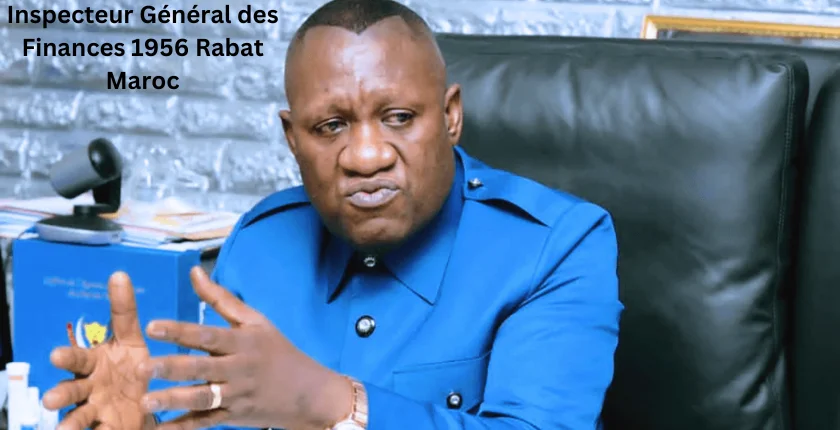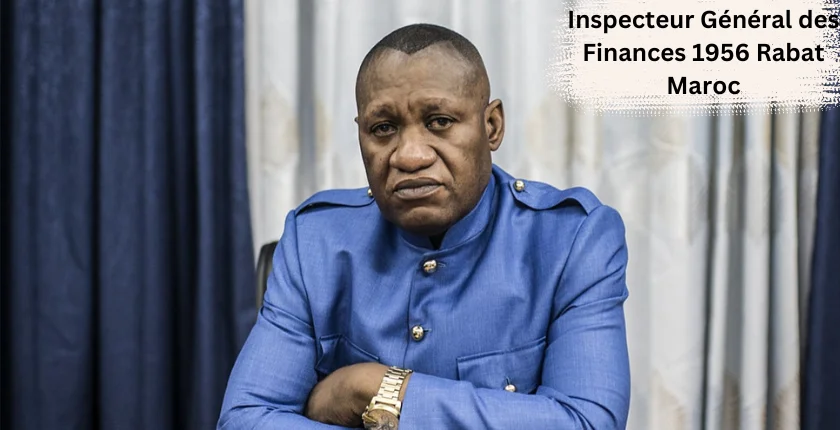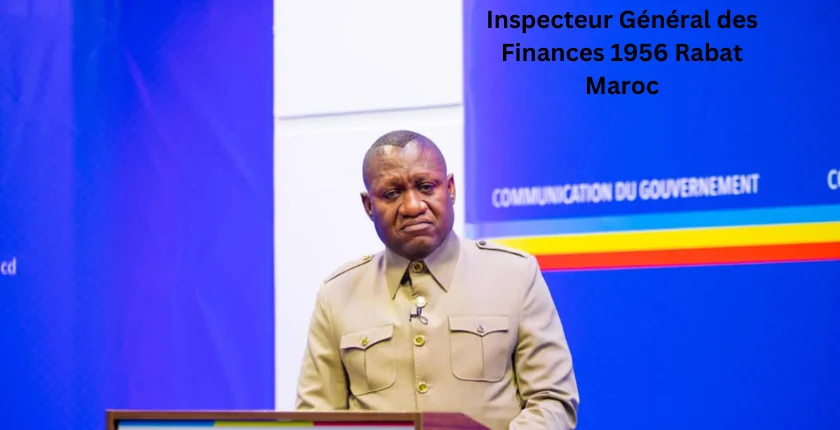Table of Contents
Embark on a journey to uncover the profound historical importance of “Inspecteur général des finances 1956 Rabat Maroc” in this enlightening piece. Delve deep into the past and grasp the pivotal role it played.
In this extensive article, we will plunge into the depths of the historical significance surrounding “Inspecteur général des finances 1956 Rabat Maroc.” Within the rich tapestry of Morocco’s financial history, this topic emerges as a cornerstone. We will unveil its historical origins and its profound influence, offering a distinctive perspective on its transformative impact on Morocco’s financial landscape.
Tracing the Roots of Inspecteur Général des Finances
To truly fathom the essence of “Inspecteur général des finances 1956 Rabat Maroc,” we must embark on a journey to trace its origins. This institution is deeply interwoven with Morocco’s historical backdrop.
In the mid-twentieth century, Morocco discovered itself at a crossroads, experiencing significant adjustments, and the monetary zone was no exception. The status quo of the Inspecteur Général des Finances in 1956 marked a pivotal milestone in the evolution of Morocco’s economic system. It heralded the sunrise of a more based and responsible economic management within Morocco.
The Inspecteur Général des Finances assumed a relevant role in supervising and regulating the financial affairs of the country. It performed a crucial function in ensuring the efficient and obvious allocation of financial resources, thereby contributing notably to the economic development of Morocco.

Related Post to read about Multi-Channel Marketing Campaign Dropbox
Upholding Financial Integrity
One of the defining characteristics of “Inspecteur général des finances 1956 Rabat Maroc” was its unwavering commitment to upholding financial integrity. This institution served as a vigilant guardian, meticulously ensuring that all financial transactions and operations within the country adhered rigorously to the highest ethical and legal standards.
The Inspecteur Général des Finances held the responsibility of conducting audits, investigations, and inspections of financial entities and government agencies. This oversight was pivotal in preventing financial irregularities and safeguarding the utilization of public funds for the betterment of the Moroccan people.
Pioneering Financial Development
The establishment of “Inspecteur général des finances 1956 Rabat Maroc” left an indelible mark on Morocco’s financial development. By championing transparency and accountability, it nurtured an environment conducive to investment and economic growth.
Foreign investors found themselves drawn to Morocco, reassured by the knowledge that their financial interests were shielded by a robust regulatory framework. This, in turn, propelled economic development, contributing to the overall prosperity of the nation.

Noteworthy Achievements and Milestones
Over the years, the Inspecteur Général des Finances achieved a series of noteworthy milestones. Some of the prominent accomplishments include:
- Revolutionizing Financial Practices: The institution played a pivotal role in modernizing financial practices in Morocco, introducing contemporary accounting methods and innovative financial management techniques.
- Reinforcing Fiscal Discipline: The Inspecteur Général des Finances played a key role in strengthening fiscal discipline within government agencies, ensuring that public funds were allocated judiciously.
- Advocating Good Governance: Through its thorough inspections and audits, the institution became a stalwart advocate for good governance and ethical financial practices.
Inspecteur Général des Finances 1956 Rabat Maroc – A Contemporary Perspective
In the present day, the legacy of “Inspecteur général des finances 1956 Rabat Maroc” endures. While the institution has evolved to align with the shifting contours of Morocco’s financial landscape, its core tenets of transparency, accountability, and ethical financial management remain unwavering.
The Inspecteur Général des Finances continues to play a pivotal role in safeguarding the financial interests of the nation and ensuring that Morocco’s economic growth proceeds along a path of sustainability and prosperity.
Summary
The “Inspecteur général des finances 1956 Rabat Maroc” is not merely a relic of the past; it stands as a testament to the evolution of Morocco’s financial sector. Its establishment in 1956 marked a significant turning point, ushering in an era defined by financial transparency and accountability. Today, its legacy persists, ensuring that Morocco’s financial landscape remains resilient and robust News.
If you found this article enlightening, please show your appreciation by hitting the like button. For more prompts and access to tools that enable you to bypass AI detectors and eliminate plagiarism, please visit the following links:
Common Questions
Q: What is the historical significance of Inspecteur général des finances 1956 Rabat Maroc?
A: The historical significance of Inspecteur général des finances 1956 Rabat Maroc lies in its profound influence on shaping Morocco’s financial landscape. Established in 1956, it played a pivotal role in modernizing financial practices, strengthening fiscal discipline, and advocating good governance.
Q: How did Inspecteur Général des Finances impact financial development in Morocco?
A: The institution had a transformative impact on financial development by championing transparency and accountability in financial transactions. This attracted foreign investors, fostering economic growth.
Q: What are the noteworthy achievements of Inspecteur Général des Finances?
A: Some key achievements include revolutionizing financial practices, reinforcing fiscal discipline, and advocating good governance through thorough inspections and audits.
Q: Is Inspecteur Général des Finances still relevant today?
A: Indeed, it is. The institution continues to safeguard Morocco’s financial interests, ensuring ethical financial management and sustainable economic growth.
Q: Can you recommend any literature or articles on this topic?
A: Certainly! You can explore resources like “Financial Evolution in Morocco: From Precolonial Times to the Present” and academic articles for a deeper understanding of this subject.

